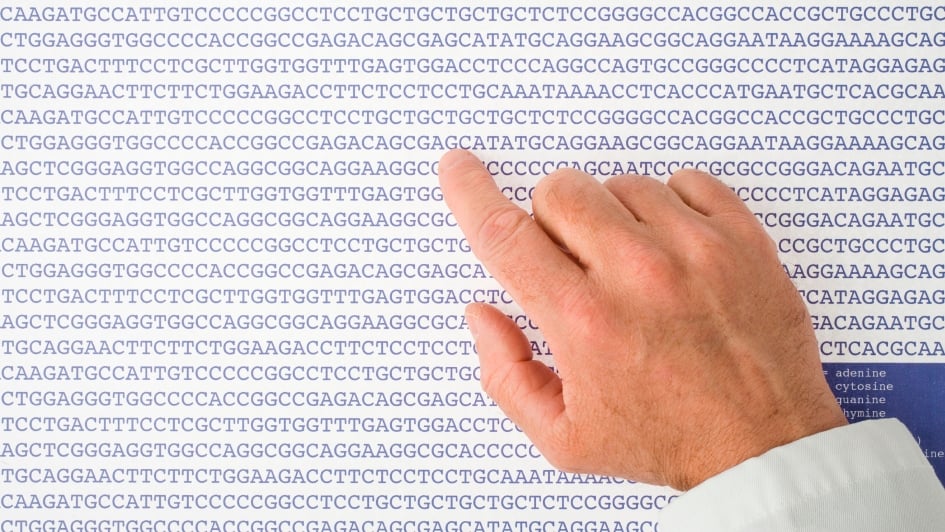
Photo: iStock.com/Claude Dagenais
Researchers have made available a vital resource that will allow labs throughout the world to assess how accurately they are detecting an important type of mutation.
The resource can be used as a benchmark for labs in detecting deletions or duplications of exons, the building block of genes – a type of mutation that can be harder to pick up than other genetic errors.
Scientists at The Institute of Cancer Research, London, have compiled results on the detection of these mutations using distinct, independent testing methods, and including validated positive and negative results.
The resource, called the ICR96 exon CNV validation series, provides an external benchmarking set, saving labs from having to rely on internal or simulated data.
Exon mutations
Genes are made up of blocks of DNA called exons. Most gene mutations are small, involving changes of only one or two letters of DNA code. These small changes are readily detected by DNA sequencing tests.
But sometimes whole exons are deleted or duplicated. These are called exon copy number variants (exon CNVs), and they are not easily picked up by standard DNA sequencing tests.
It is vital to find these mutations because they are an important cause of disease. For example, about 10% of BRCA1 mutations are exon CNVs. In clinical testing laboratories, a separate test has traditionally been used to detect exon CNVs, but this adds considerable time and cost and is not available for all genes.
The ICR 96 Exon Validation series study is a sequencing dataset of 96 samples for orthogonal assessment of exon CNV calling in NGS data.
Find out more
Many laboratories have been trying to develop new ways of analysing sequencing data so that exon CNVs can be picked up accurately and without too many false positives, which are costly and time-consuming to follow up and discount.
A problem for the field has been the absence of external sequence datasets that include samples with experimentally proven exon CNVs and samples in which exon CNVs have been proven not to be present.
Accurate detection vital
The ICR96 exon CNV validation series aims to fill this void. It includes data from 96 samples, 66 with at least one validated exon CNV and 30 with validated negative results for exon CNVs in 26 genes.
The dataset has general utility for exon CNV detection and is particularly useful for benchmarking cancer predisposition gene testing. This is important because tests for cancer predisposition genes, such as BRCA1 and BRCA2, are among the most widely performed and clinically useful of any gene test, but require the accurate detection of exon CNVs.
The ICR96 exon CNV validation resource, which is published on the open access platform Wellcome Open Research, is available through a simple access process to any legitimate clinical, research or commercial enterprise.
It was put together through the Wellcome-funded Transforming Genetic Medicine Initiative, which is building resources to help deliver the promise of genetic medicine.
Study Leader Professor Nazneen Rahman, Head of Cancer Genetics at the ICR, said: “The ICR exon CNV validation series has been invaluable in our assessment of exon CNV detection methods, and we believe others will find it equally useful. Usually laboratories have to use internal data or simulated data, but this has limitations and hampers our ability to compare different methods. As genetic medicine becomes increasingly global, being able to compare and benchmark testing done in different laboratories becomes increasingly important.”